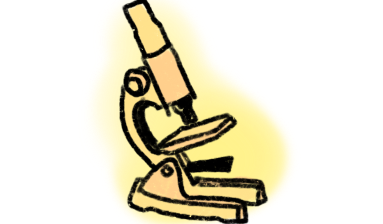Make room for new discoveries
Hamline students work with faculty to present at the Hamline Interdisciplinary Research Symposium.
September 23, 2021
Every year, students are given the opportunity to participate in Summer Collaborative Undergraduate Research. Students spend 10 weeks of their summer working on a project that they will then present at the Hamline Interdisciplinary Research Symposium during the fall semester.
Junior Maddie Sowinski and Sophomore Josh Sedarski are two students who worked on a research project over their summer. They collaborated with physics professor Dr. Lifeng Dong on optimizing the sensitivity for lead detection in drinking water using Raman spectroscopy.
“Our research focused on finding an accurate and sensitive detection method which is more affordable and accessible—meaning that it can be used in a wide range of communities, especially those that often aren’t targeted for testing,” Sowinski said.
While both Sowinski and Sedarski said that they enjoyed and appreciated the experiences that they had, they also experienced a lot of challenges.
“We were so excited to try all of the ideas we had proposed for nearly all of them to not work out. With a lot of patience and perseverance, we tried to use these frustrations as motivation to keep searching for what we could find,” Sowinski said. “However, near the end of summer, we finally had a handful of solution combinations that we saw promising Raman signals for, which was very exciting and rewarding.”
Sedarski shared a similar outlook to the situation as his partner did.
“You will fail, and failure isn’t a bad thing. When you’re trying out a new approach to a particular problem, there’s likely a limited pool of information to draw on and so it’s hard to get it completely ‘right’ the first go-round. But even if you fail in this situation, you still learned valuable information that will help you and others get that much closer to a workable solution,” Sedarski said.
While people may typically equate research to the sciences, undergraduate research opportunities are not limited to the STEM fields. Sophomore Ruby Schroeder spent her summer writing a musical based around people with disabilities in theater.
Schroeder’s musical features sections where performers can fill in the blank with whatever applies to them, devised sections where performers can create their own scenes based on a prompt and spots where the script can be adjusted to fit the needs of whoever is performing.
Schroeder, who identifies as disabled herself, noticed challenges in working with her composer Nina Stone, in terms of understanding what disability means.
“It was a lot of me assuming things were common knowledge and her having revelations,” Shroeder said. “That was really great collaboration and I think that’s where a lot of the design came out of.”
She hopes that her audience can better understand the disabled community through her work.
“The point of the musical was not to inspire people in the disabled community [to see] that they can do this, rather it is to show people who have internalized ableism in our society and show them that it is entirely possible and also incredible, very valuable to art, society and community,” Schroeder said.
The Hamline Interdisciplinary Research Symposium will take place in the Anderson forum on September 23rd from 11:20 a.m. to 12:40 p.m.

